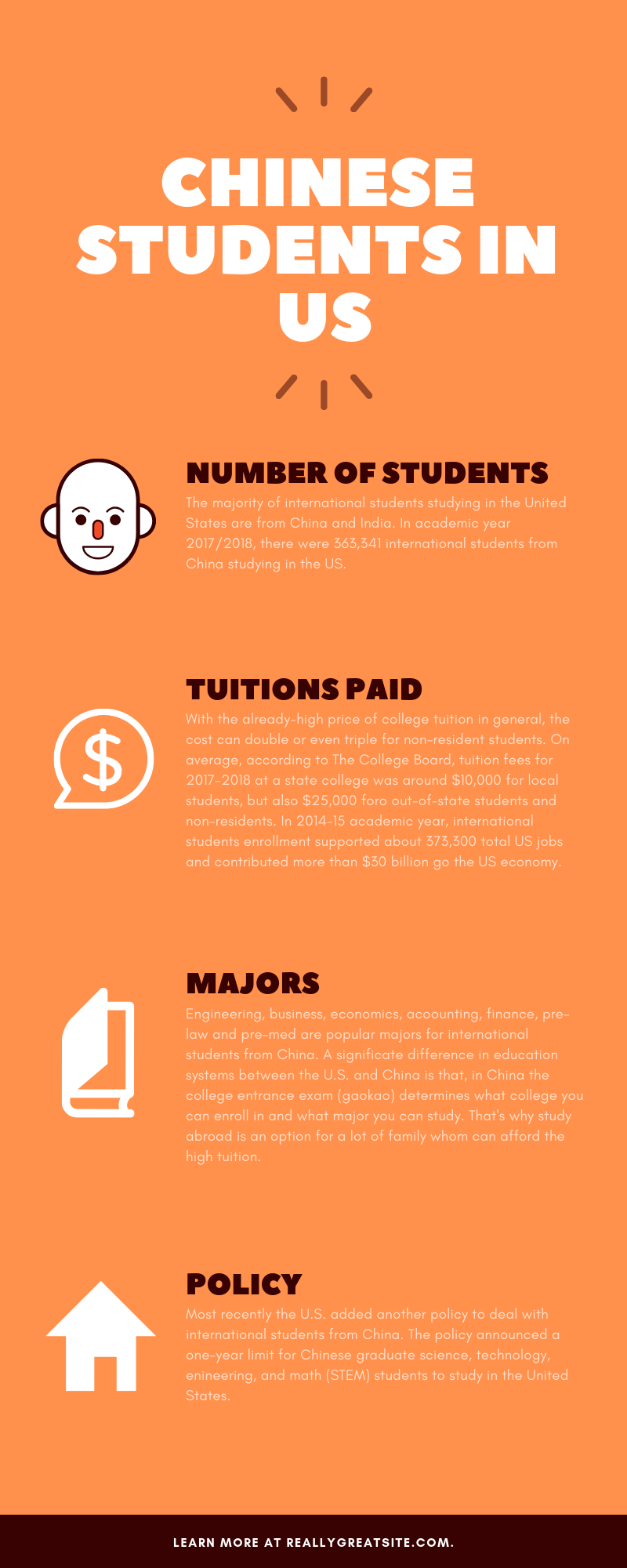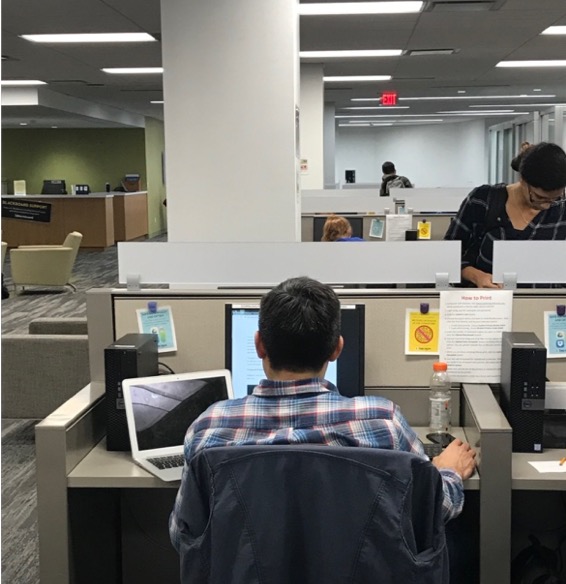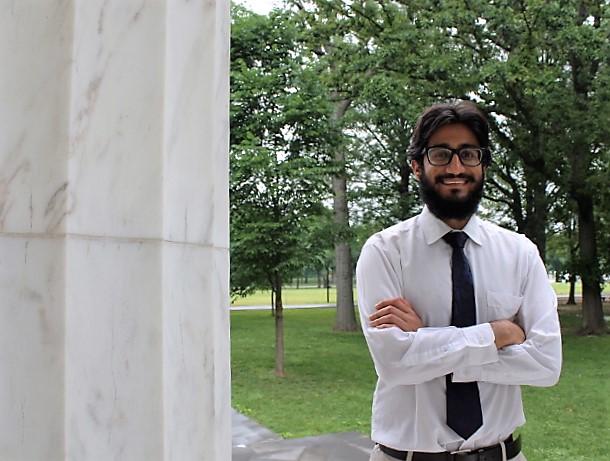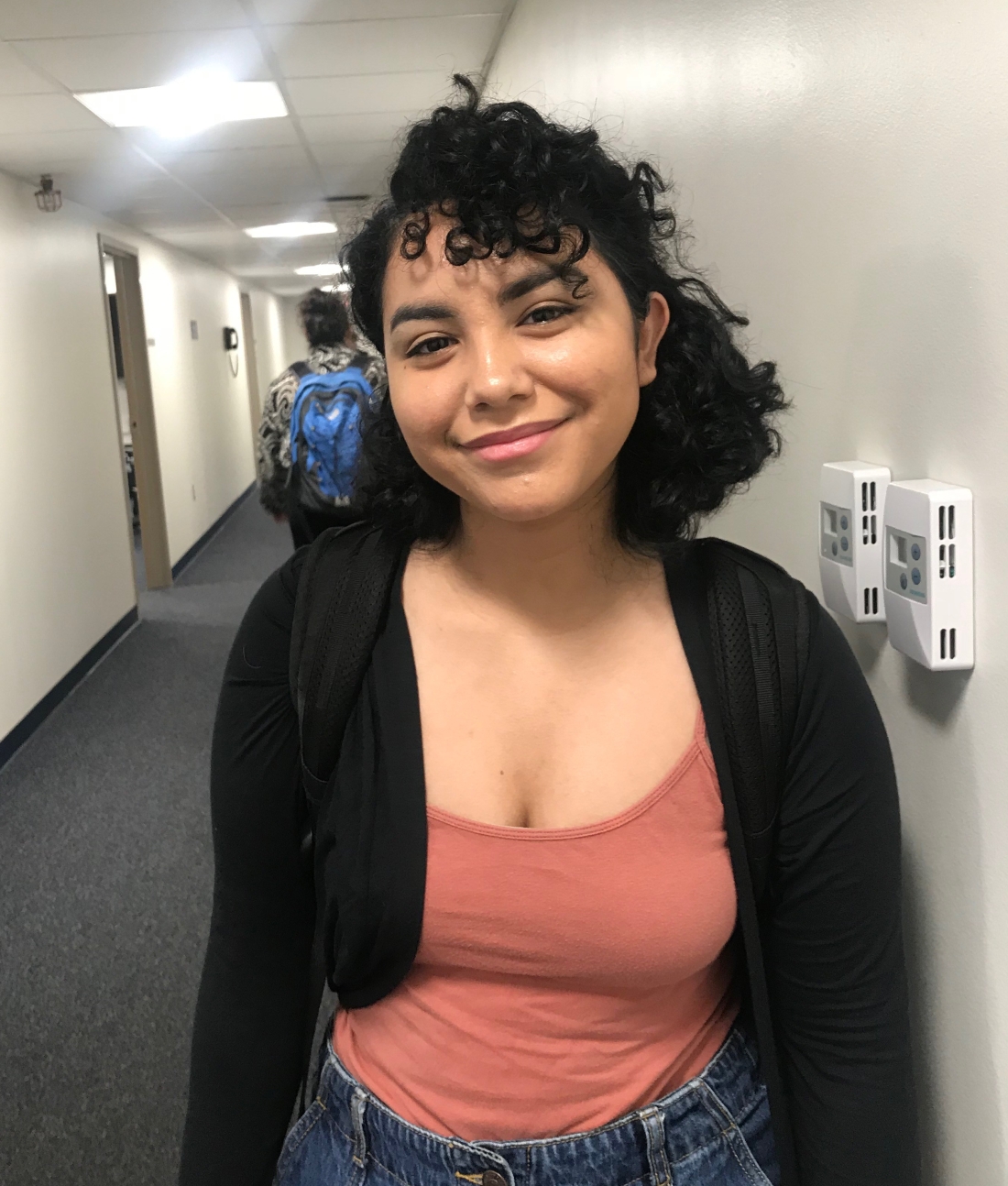By Shengya Li
Washington – The Trump administration announced changes in its immigration policy during August, which intend to decrease nonimmigrant student overstays and improve the integrity of the nonimmigrants student visa. But many international students are worried and some had already been affected by the policy change.
A figure released by the Department of Homeland Security shows that the students and exchange visitors have the highest overstay rate among nonimmigrant visitors. The new policy established a maximum period of authorized stay for international students and other holders of certain immigration visas. Non-immigrants visa holders including F, J, and M student visas who violated the policy would be determined as “unlawful presence” with a potential punishment of future ten years bars on retrying the country.
Andy Semotiuk, a U.S. and Canadian immigration attorney, has worked in this field for more than 40 years. Semotiuk said in a phone interview, “It would affect certain student more than others, and among those that it would affect the most would be Chinese students.” Possible reasons could be the recent trade tension between the U.S. and China, and property theft suspicion to the Chinese Government.
Many international students would prefer to practice what they learned from the U.S. colleges before returning to their home countries, but the new policy makes them frustrated and afraid of leaving the U.S. even there’s family emergency happened. According to a report released by Brookings Institution, a nonprofit public policy organization based in Washington, D.C., forty-five percent of foreign student graduates extend their visas after graduated to work in the same metropolitan area as their college or university under Optional Practice Training (OPT) program.
The OPT program is temporary employment that is directly related to an F-1 student’s major of study. Eligible students can apply up to 12 months of OPT employment authorization, and for students who earned a degree in certain science, technology, engineering, and math (STEM) fields, they may apply for a 24-month extension. The U.S. Citizenship and Immigration Services (USCIS) added another change of a one-year limit for China graduate STEM students in the U.S.

An international student from China who recently graduated from Georgetown University has experienced a hard time applying for her OPT program. She explained that her major was changed to a STEM major after she graduated. The international student service office informed her that they could apply for a 24-month extension on their OPT program. “ There were more than 20 international students in the similar situation who were applying for an extension of the OPT program at the same time with me,” she said in the interview, “I was the only one who received an email of denial.”
She said, “The USCIS said that my program didn’t belong to the STEM program. It was pretty sudden, because I have used up all my grace period, and was panicking and prepare to leave the U.S.,” she said, “I thought I had two more years and was told to leave as soon as possible, but for the other international students in our program, they all extended their program successfully.”
The unexpected letter of denial pushed her to a situation of being nearly an unlawful presence in the U.S. After consulting the office of International Student and Scholar Service at Georgetown University, she spent $750 on hiring a lawyer to help her preparing documents for re-applying. Finally, her case was reviewed, and she can stay in the U.S.
“I received the email from them four months after I applied for the extension, and was asked to respond in 30 days, so I have to find a lawyer to help me re-apply and prepare for all the documents,” she said, “ or I would have to return to China and pay for the penalties from my apartment and all other things.”
Critics say that this policy is closing the door for innovations and global intelligence by higher education institutions because it could exclude international students from top institutions. This policy took effect in August and is stringent to the timing of staying.
Steven Hung, an international student at American University, said in an interview that, “I am more worried about reentry after departing the states for breaks and even for family emergencies,” Hung said, “I had been pulled to the US Customs and Border Protection’s interviewing room multiple times when I entered the US custom during the years. Every time I have to wait there for about half an hour and some officials came in and rechecked my documents. That just makes me feel more anxious about entering the States.“
Hung is a health-promotion major graduate student. He wishes to have a long enough period that allows him to get sufficient clinical experience, “I previously wanted to work as a dietitian because I believed there to be better opportunities here,” said Hung, “ but with the limited time now, the process is much harder.”
It is tough for international students to find a job to get their skills practiced, comparing to American students. Zhongyi Su, an American University alumni who graduated in 2018 spring, said in the interview, “ My major is related to journalism majors, and I knew that before I came to the U.S. to study, it’s like a lower chance for me to find a job in the U.S.”
Su said, “no matter internships or jobs because this is a language-based major that you have to compete with local people, most of my friends who stayed here, the job we found are mostly from China-related companies.”
Su came to the U.S. for graduate studies in 2016, because she wanted to broaden her views and make more friends from all over the world. “I liked both the environment and the people here,” Su said, “and I want to be more independent and meet more friends here, it’s just broadened my eyes.”
Su wants to stay with her boyfriend who is from Canada and is applying for a Canadian working visa now. “He wanted to stay in the US as well, but he used up his OPT time and couldn’t get a company to sponsor him to stay,” Su said, “ so I am actually applying for a Canadian visa while working here in my OPT time. I know it is hard to get a working visa at the U.S.” Especially after the new policy came out, she has decided to not trying to look for a working chance after her OPT time and wanted to look for opportunities in Canada instead.
The National Security Strategy document has underlined a change in “tighten visa procedure” saying that, “The United States will review visa procedures to reduce economic theft by non-traditional intelligence collectors. We will consider restrictions on foreign STEM students from designated countries to ensure that intellectual property is not transferred to our competitors.”
He Cheng, a recent graduate student from George Washington Univerisity, has a master’s degree in electrical engineering. Cheng has been struggling to get a job during his OPT time. Cheng said in an interview, “It is much harder for us to get a job comparing to last few years, as a STEM major graduate, and I think it’s mainly for protecting American students.” said Cheng, “However, I still see it as a positive impulse to me. It tells me to work much harder and get stronger.”
However, not everyone thinks that as a great benefit for the U.S. Semotiuk called this a “false fear” to Chinese students. “It’s a false fear in terms of undermining the American sort of security situation,” said Semotiuk, “ When I read about these new regulations along that line, to some extent I think it’s the hostility that was evident in the early implementation of the regulations towards foreign students.”
Semotiuk thinks there are a lot more benefits for having international students in the U.S., regarding economic growth and national development as well. “In terms of the American economy, it makes little sense to introduce hostile requirements and sort of corner these students into essentially leaving once they get the education that they’re looking for,” said Semotiuk, “ What the benefits that the U.S. government gets from these students is the economic benefits of them paying their tuition and their livelihood while they were in the U.S.”
According to data from SelfScore, a company providing financial service to international students, international students pay more expensive tuitions than In-state students at public universities. International students are crucial to the US economy in two primary ways by financing education loss for public universities and their domestic students and fueling the US tech industry.
In 2015, the countries’ public universities gleaned more than $9 billion in tuition and fees from foreign students. Although foreign students only made up 12% of the student population, about 28% of annual tuition revenue is coming from them. In the 2014-15 academic year, international student enrollment supported about 373,300 total US jobs and contributed more than $30 billion to the US economy. With less international students enrolling in American universities, the local students will also suffer because there’s a loss in subsidy on their tuitions.
“The other benefit is that exporting these students back to where they came from leaves openings for American students to take up high ranking positions in industry and economics in finance and particularly in science,” said Semotiuk. He also said that the hostile attitude that turns aways international students lead some college to be closed. Without this international students contribution, they were unable to continue their teaching.
“I think what is needed is a broad educational campaign directed at the American public to have them trained to understand the great benefit of international students to the American society,” said Semotiuk, “in terms of education. Economics, leadership and generally in terms of cultural contributions in America.”




